Abyssinian Cat
- February 15, 2024
- 0 comment
The Abyssinian cat, often revered for its stunning appearance and captivating personality, is a beloved breed among feline enthusiasts. Originating from ancient Egypt, this enigmatic feline boasts a rich history and a distinctive physicality that sets it apart. With its sleek, muscular build, large almond-shaped eyes, and striking ticked coat adorned with bands of contrasting color, the Abyssinian exudes an air of elegance and grace. Renowned for its intelligence and curiosity, the Abyssinian is a spirited and inquisitive companion, always eager to explore its surroundings and engage in interactive play.
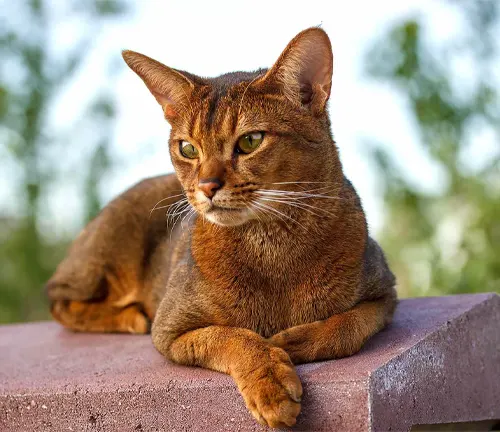
Despite its independent nature, this breed forms strong bonds with its human counterparts, often displaying affectionate and loyal tendencies. Abyssinians thrive in households where they receive ample attention and mental stimulation, making them ideal companions for families and single owners alike. With proper care and attention to their dietary, grooming, and exercise needs, Abyssinian cats can live long, healthy lives, bringing joy and companionship to those fortunate enough to share their homes.
| Specifications | Description |
|---|---|
| Origin | Ancient Egypt |
| Coat | Short, ticked coat with bands of color |
| Colors | Ruddy, red, blue, fawn, and variations |
| Body Structure | Sleek and muscular |
| Eye Shape | Almond-shaped |
| Personality | Intelligent, curious, playful, affectionate |
| Temperament | Lively, sociable, independent |
| Compatibility | Good with children and other pets |
| Care Requirements | Balanced diet, regular exercise, minimal grooming |
| Health Considerations | Prone to dental issues, renal disease; requires regular vet check-ups |
| Lifespan | Average 12 to 15 years, with some living longer |
| Training | Quick learners; respond well to positive reinforcement and interactive play |
| Famous Examples | Notable Abyssinians in popular culture include “Jake” from the TV series “Jake and the Fatman“ |
| Breed Standards | Recognized by major cat associations; held to high standards emphasizing appearance and temperament |
| Common Myths | Often associated with ancient Egyptian culture, misconceptions about mystical powers |
Abyssinian Cat: Exploring the Enigmatic Feline Companion
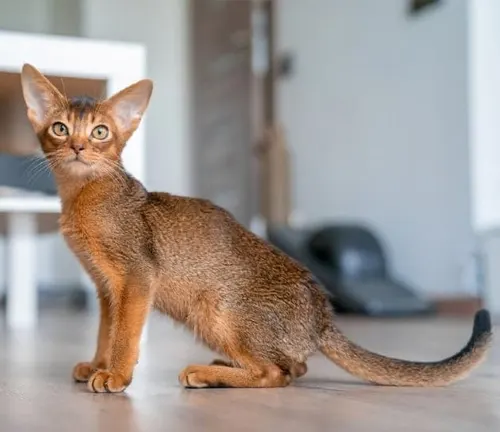
Abyssinian cats, often referred to as “Abys,” are among the most enigmatic and captivating feline companions one can have. Originating from the cradle of civilization, these cats have a rich history and a distinctive appearance that sets them apart. In this article, we delve into the world of Abyssinian cats, exploring their physical characteristics, personality traits, care requirements, and much more.
Believed to have originated from ancient Egypt, Abyssinian cats have a mysterious allure that has fascinated cat enthusiasts for centuries. With their elegant build and striking ticked coat, these cats exude an air of royalty and sophistication. While their exact lineage remains shrouded in mystery, it is widely believed that Abyssinians were revered as sacred cats in ancient Egypt, often depicted in hieroglyphs and artifacts.
Physical Characteristics
One of the most distinctive features of Abyssinian cats is their coat, which is adorned with contrasting bands of color, giving them a distinctly wild appearance. Their almond-shaped eyes, large ears, and graceful body structure further add to their allure. Abyssinians come in a variety of colors, including ruddy, red, blue, and fawn, with each coat color highlighting their unique beauty.
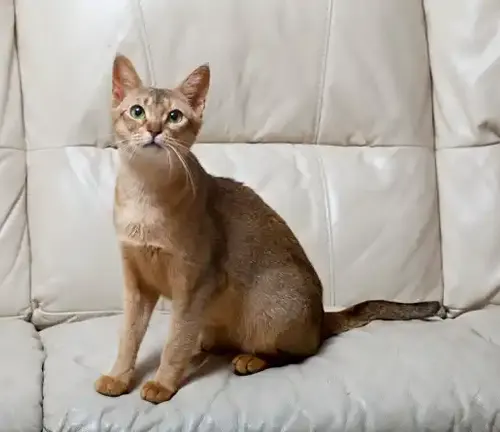
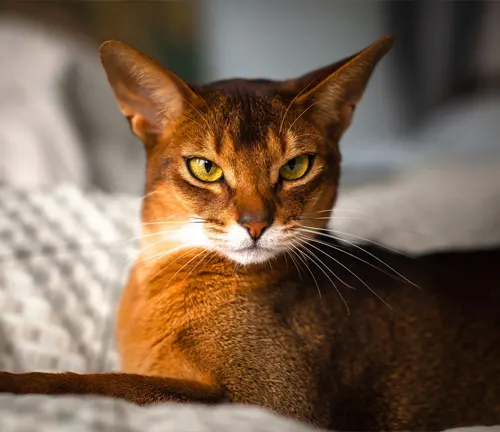
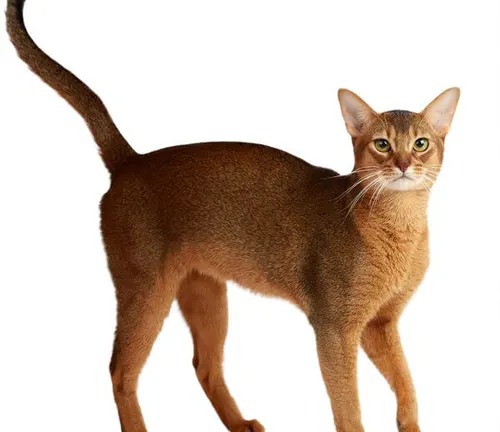
- Coat: The most striking feature of the Abyssinian cat is its coat, which is short, dense, and silky to the touch. The coat is characterized by a ticking pattern, where each hair has alternating bands of light and dark color, giving the cat a distinctly agouti appearance.
- Color: Abyssinian cats come in a variety of colors, including ruddy, red, blue, and fawn. Each color variation has its own unique beauty, with the ticking pattern adding depth and dimension to the coat.
- Body Structure: Abyssinian cats have a medium-sized, muscular build with a lithe and elegant appearance. They possess a balanced body structure, with well-developed muscles and a graceful silhouette.
- Head: The head of an Abyssinian cat is wedge-shaped, with a slightly rounded skull and medium-sized ears that are broad at the base and taper to a point. Their almond-shaped eyes are large, expressive, and typically come in shades of gold, green, or hazel.
- Tail: The tail of an Abyssinian cat is medium in length, tapering to a point at the end. It is thick at the base and tapers gradually towards the tip, with a fine coat of short hair covering the entire length.
- Legs and Paws: Abyssinian cats have slender, athletic legs with small, oval-shaped paws. Their paws are dainty and well-proportioned, with tufts of fur between the toes adding to their elegance.
- Overall Appearance: In summary, the Abyssinian cat has a distinctive appearance characterized by its ticked coat, almond-shaped eyes, and graceful body structure. These physical characteristics contribute to the breed’s unique allure and make it one of the most recognizable and beloved cat breeds in the world.
Personality Traits
Beyond their striking appearance, Abyssinian cats are known for their lively and inquisitive personalities. They are highly intelligent creatures, often displaying a keen interest in their surroundings and a penchant for exploration. Despite their independent nature, Abyssinians are also affectionate companions, forming strong bonds with their human counterparts.
Intelligence
Abyssinians are highly intelligent cats, known for their quick wit and ability to learn new tricks and tasks easily. Their intelligence makes them engaging companions and allows for stimulating interactions with their owners.
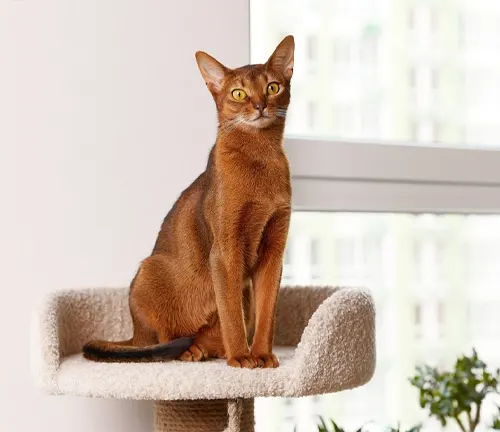
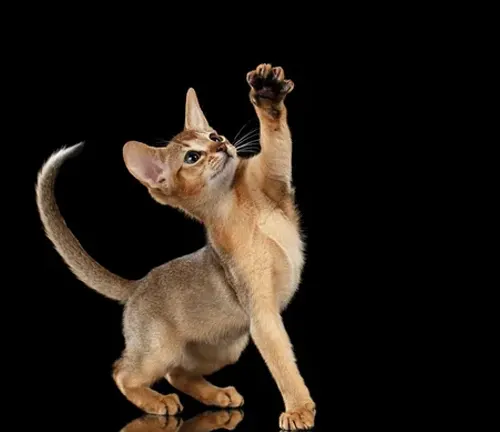
Playfulness
Abyssinian cats have a playful and energetic nature that persists well into adulthood. Their love for playtime and interactive activities not only keeps them entertained but also fosters strong bonds with their human family members.
Affection
Despite their independent streak, Abyssinians are affectionate cats that enjoy spending time with their owners. They form strong emotional bonds and seek out companionship, often displaying their affection through cuddles, purrs, and other forms of physical contact.
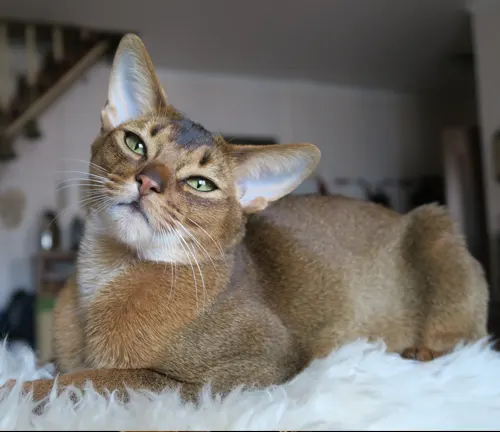
Abyssinian Cat Care
To ensure the health and happiness of an Abyssinian cat, it’s essential to provide them with proper care and attention. This includes a balanced diet tailored to their nutritional needs, regular exercise to keep them mentally and physically stimulated, and grooming sessions to maintain their sleek coat.
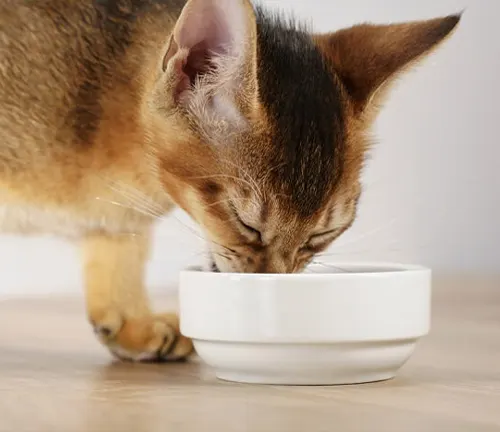
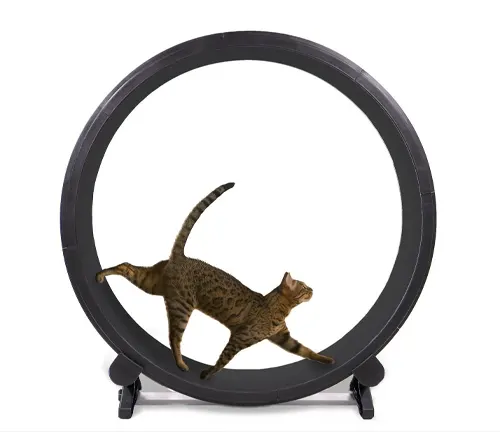
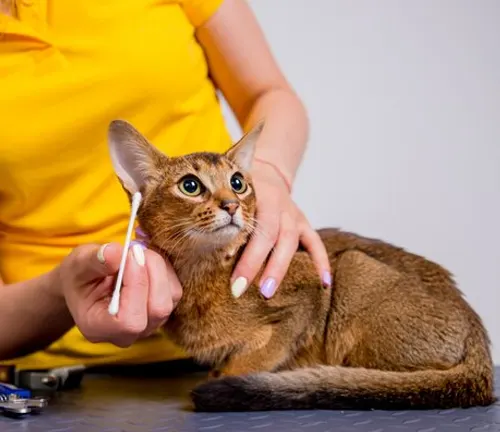
- Balanced Diet: Providing a balanced and nutritious diet is essential for maintaining the health and well-being of an Abyssinian cat. Choose high-quality cat food that is appropriate for their age, activity level, and any specific health concerns they may have. Avoid overfeeding to prevent obesity, and ensure they have access to fresh water at all times.
- Regular Exercise: Abyssinian cats are active and playful by nature, so it’s important to provide them with regular exercise and mental stimulation to keep them happy and healthy. Engage them in interactive play sessions with toys, puzzles, and laser pointers, and consider providing opportunities for climbing and exploring to satisfy their natural instincts.
- Grooming: Despite their short coat, Abyssinian cats still require regular grooming to keep their fur in good condition and reduce shedding. Brush them weekly with a soft-bristled brush to remove loose hair and prevent matting. Additionally, trim their nails regularly to keep them from becoming overgrown and provide them with a scratching post to help maintain their claws.
Health Considerations
While Abyssinian cats are generally robust and healthy, they may be prone to certain health issues, including dental problems and renal disease. Regular veterinary check-ups are essential to monitor their health and address any potential issues promptly.
Dental Health
Abyssinian cats can be prone to dental issues such as tartar buildup, gingivitis, and periodontal disease. Providing regular dental care, including brushing their teeth and offering dental treats or toys, can help prevent these dental problems and maintain their oral health.
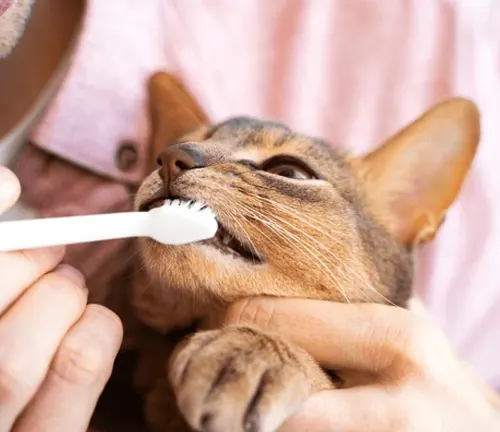
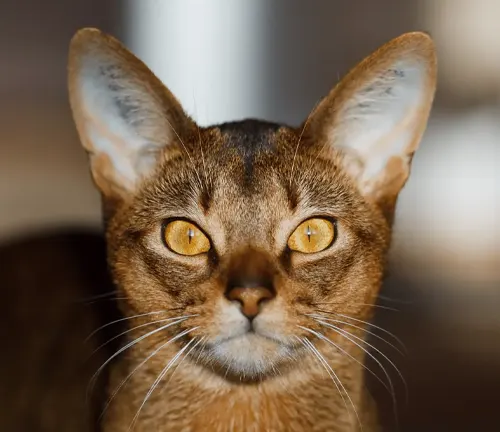
Renal Health
Abyssinian cats may be predisposed to certain renal (kidney) conditions, such as renal amyloidosis, which can affect their kidney function over time. It’s important to monitor their renal health through regular veterinary check-ups and blood tests to detect any potential issues early and provide appropriate treatment.
Nutrition and Weight Management
Maintaining a healthy weight is crucial for Abyssinian cats to prevent obesity-related health issues such as diabetes, arthritis, and heart disease. Ensure they receive a balanced diet tailored to their nutritional needs and monitor their food intake to prevent overfeeding. Regular exercise is also essential for keeping them fit and active.
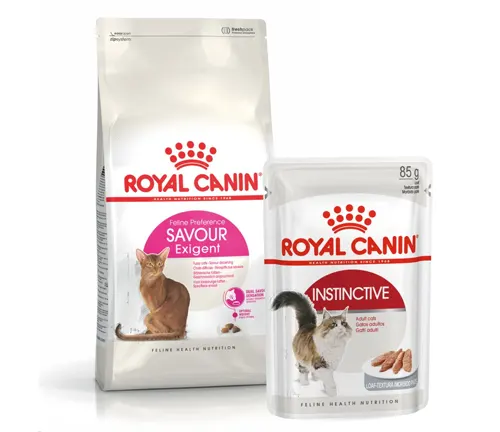
Abyssinian Cat as a Family Pet
Abyssinian cats make wonderful family pets due to their affectionate nature, playful demeanor, and social personality. Here are some reasons why Abyssinian cats are well-suited for family life:
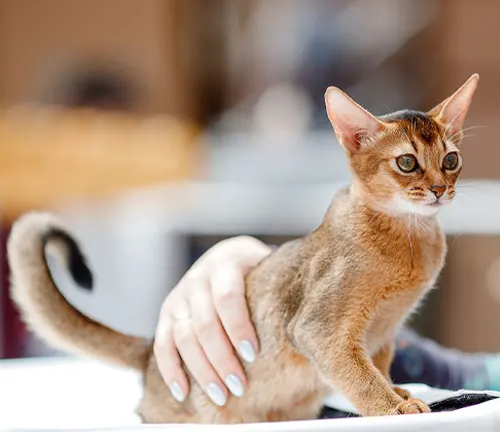
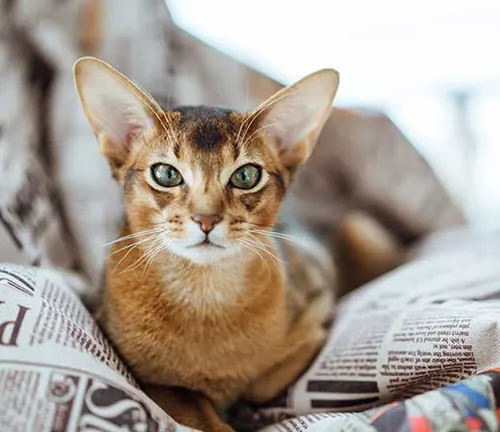
- Playful and Energetic: Abyssinians are known for their playful and energetic nature, making them excellent companions for children and adults alike. They enjoy interactive play sessions and thrive in environments where they receive plenty of attention and stimulation.
- Affectionate and Loyal: Despite their independent streak, Abyssinian cats are affectionate and form strong bonds with their human family members. They enjoy cuddling and being close to their loved ones, providing comfort and companionship to everyone in the household.
- Good with Children and Other Pets: Abyssinian cats are generally good with children and other pets, as they are sociable animals that enjoy the company of others. They are patient and gentle, making them suitable companions for families with children or other pets.
- Adaptable and Sociable: Abyssinians are adaptable cats that can easily adjust to different living environments and lifestyles. Whether living in a bustling household or a quiet apartment, they thrive on companionship and interaction, making them versatile family pets.
- Easy to Care For: With their short coats and low grooming requirements, Abyssinian cats are relatively easy to care for compared to some other breeds. They require minimal grooming and maintenance, allowing families to focus on enjoying their time together rather than worrying about extensive grooming routines.
Different Species
Ruddy Abyssinian
The classic Abyssinian cat with a rich, reddish-brown coat color, highlighted by darker ticking.
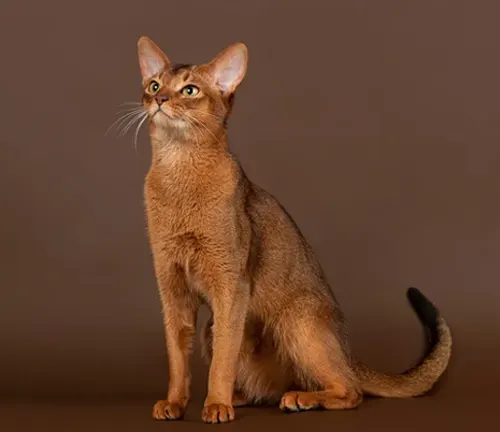
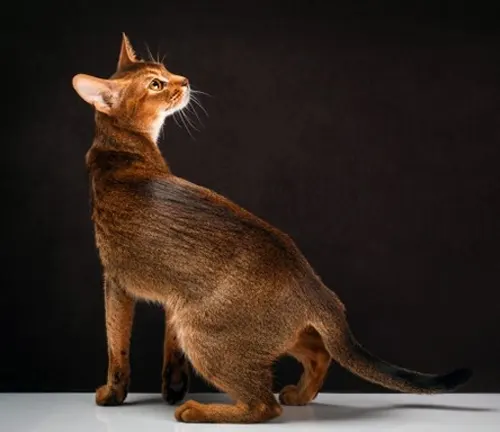
Red Abyssinian
Similar to the ruddy Abyssinian but with a more vibrant red coat color.
Blue Abyssinian
A striking variation with a bluish-gray coat color, also characterized by darker ticking.
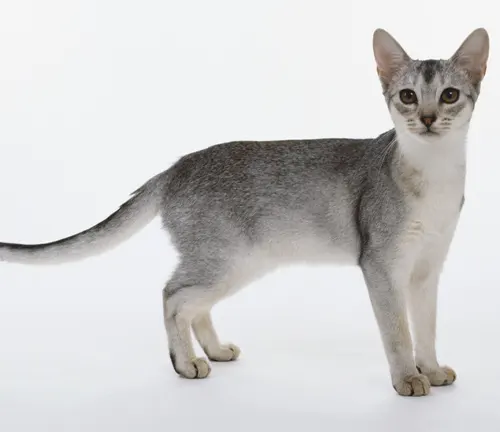
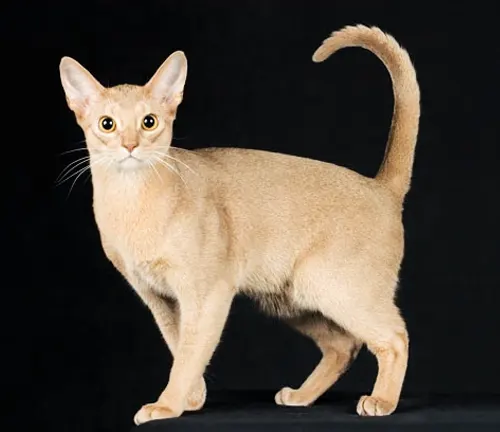
Fawn Abyssinian
A lighter variation with a warm, sandy-colored coat and distinct ticking.
Silver Abyssinian
A rare variation with a silver-gray coat color and dark ticking, creating a shimmering effect.
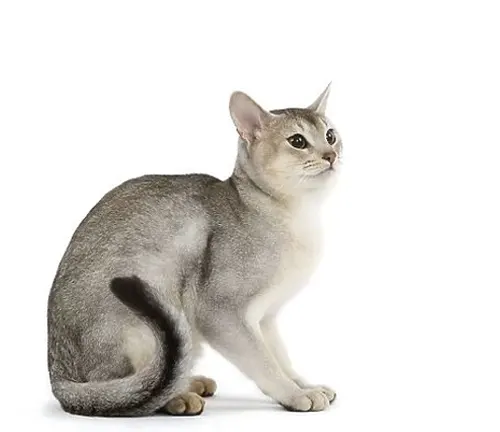
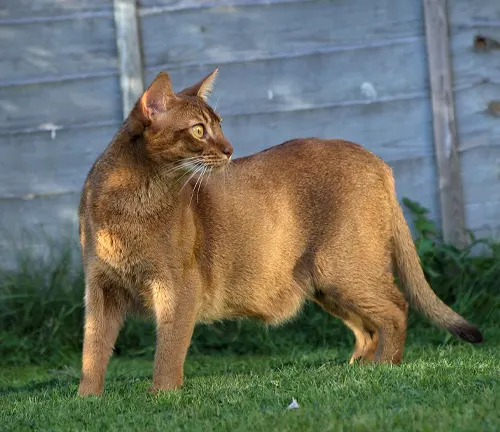
Chocolate Abyssinian
A less common variation with a deep chocolate-brown coat color and ticking.
Lilac Abyssinian
Another rare variation with a pale, diluted lavender-gray coat color and ticking.
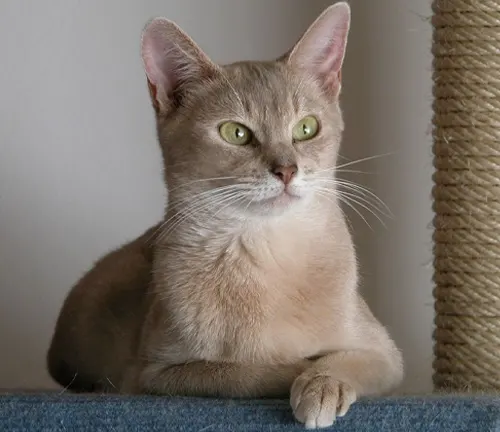
Frequently Asked Questions (FAQs)
- Are Abyssinian cats hypoallergenic?
While no cat breed is completely hypoallergenic, some people with allergies may find Abyssinian cats more tolerable due to their short coats and low shedding. - Do Abyssinian cats require a lot of grooming?
Abyssinian cats have short, low-maintenance coats that require minimal grooming. Regular brushing and occasional baths are usually sufficient to keep their coat in good condition. - Are Abyssinian cats good with children?
Abyssinian cats are generally good with children, as they are playful and sociable animals. However, it’s essential to supervise interactions to ensure the safety of both the cat and the child. - How long do Abyssinian cats live?
With proper care, Abyssinian cats can live on average between 12 to 15 years, although some may live even longer. - Do Abyssinian cats require a lot of exercise?
Abyssinian cats are active and playful by nature, so they benefit from regular exercise and interactive play sessions to keep them mentally and physically stimulated. - What type of diet is best for Abyssinian cats?
A balanced diet consisting of high-quality cat food is essential for Abyssinian cats. Consult with a veterinarian to determine the best diet plan based on your cat’s age, weight, and health needs. - Are Abyssinian cats prone to any health issues?
While generally healthy, Abyssinian cats may be predisposed to certain health conditions such as dental issues and renal disease. Regular veterinary check-ups are crucial for early detection and treatment. - Do Abyssinian cats get along well with other pets?
Abyssinian cats are typically sociable and can get along well with other pets, including dogs and other cats. Proper introductions and supervision are recommended when introducing them to new furry friends. - Are Abyssinian cats vocal?
Abyssinian cats are known to be more silent compared to other breeds, but they may occasionally vocalize to communicate with their owners or express their needs. - Do Abyssinian cats require indoor or outdoor living?
Abyssinian cats can adapt to both indoor and outdoor living environments; however, they are generally safer indoors where they are protected from potential dangers such as predators, traffic, and diseases. - How can I find a reputable Abyssinian cat breeder?
Researching and contacting recognized Abyssinian cat breeders through cat associations and online platforms can help you find a reputable breeder who prioritizes the health and welfare of their cats.


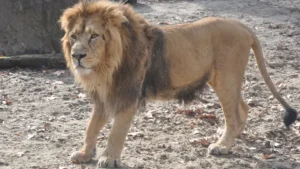


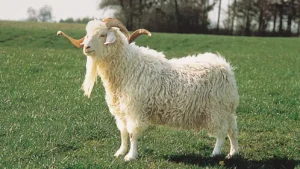


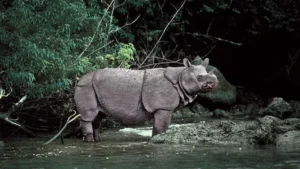
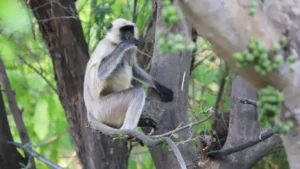
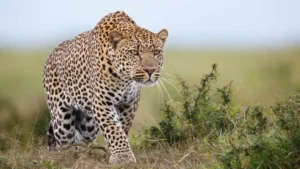
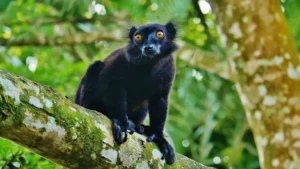
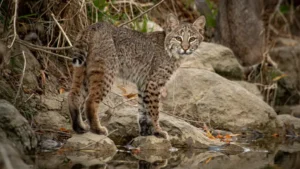
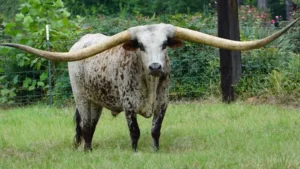
Leave your comment